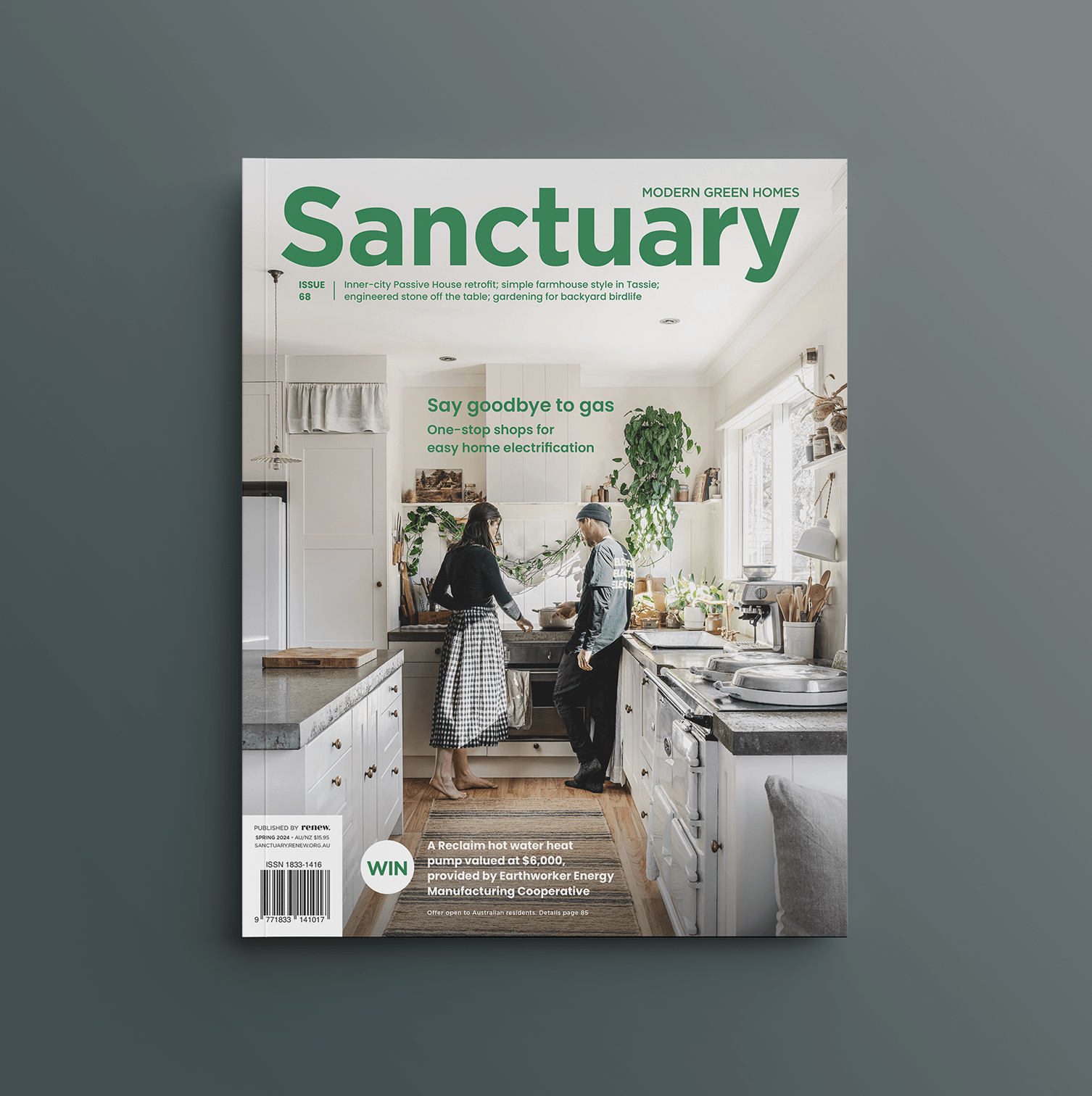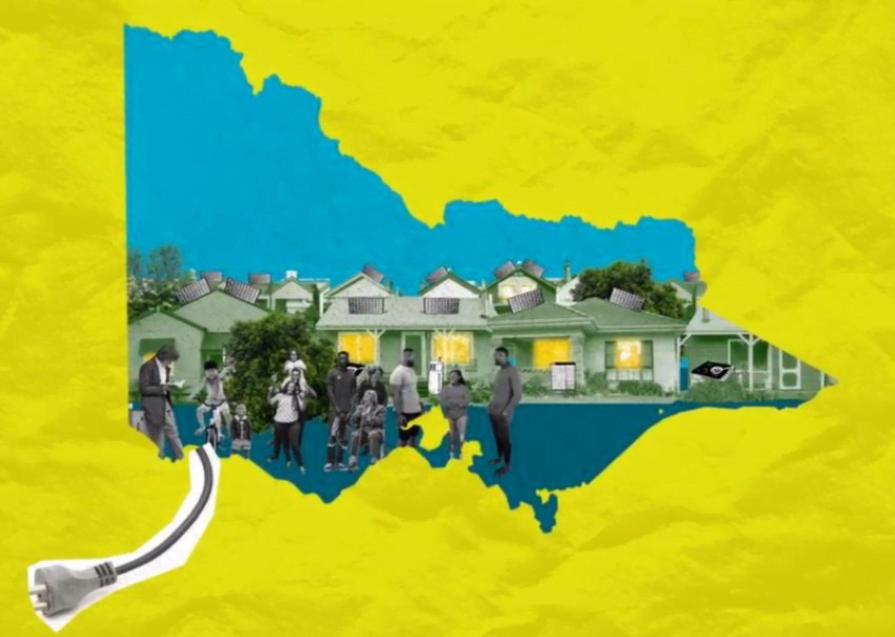Victoria’s updated Gas Substitution Roadmap shows that the clock is ticking for residential gas.
Getting homes off gas cuts bills, improves health, and reduces emissions. With today’s update to its 2022 Gas Substitution Roadmap, the Victorian government is signalling a major shift to all-electric homes powered by renewables.
It is critical that the transition away from fossil gas must be equitable and affordable for all Victorians. Renew continues to advocate for household needs to be placed firmly at the centre of energy policy.
Households still face barriers to getting off gas. The upfront costs of replacing appliances, tenancy arrangements for renters, and difficulty accessing advice and information are all slowing down the transition and risk leaving vulnerable Victorians behind. The Victorian government’s commitments in the updated Roadmap point a way to tackle these challenges.
The update commits to expanding minimum energy standards for renters to include ceiling insulation, draught sealing, hot water and – for the first time – cooling. Renters face particular barriers to electrification and energy efficiency, depending on landlords to pay upfront costs. Mandatory minimum standards including an end to new gas appliances for renters are needed to make sure renters aren’t left behind in the energy transition.
Households need trusted information, and this has been left to the community sector. The Roadmap has outlined the potential role of the relaunched SEC to function as a ‘one stop shop’ that can assist Victorians to navigate and engage with home electrification. Renew welcomes new resources for consumers, as we continue to provide independent advice to households, including the resources of the Getting Off Gas Toolkit.
The Roadmap also backs further measures to bring homes up to scratch that Renew has long advocated for, including mandatory disclosure of energy ratings and stronger energy efficiency standards in the National Construction Code for Victoria that will become mandatory from 1 May 2024. These strengthened standards require an increase in efficiency from 6 to 7 stars and introduce a new ‘whole-of-home’ energy budget to manage energy use from major appliances. Victoria’s Housing Statement, released on 20 September 2023, announced a planning exemption for a small secondary dwelling that also requires these new dwellings to be all-electric.
The existing policy commitments laid out in the recent update include:
- New homes to require a planning permit to be all-electric from 1 January 2024,
- Increased minimum energy efficiency standards for rented homes,
- Expansion of the VEU program to include induction cooktops
- A regulatory impact statement (RIS) to investigate options to progressively electrify all new residential, and most commercial buildings where appropriate electric appliance options are readily available, and the potential to require existing gas appliances be replaced with electric appliances when the current appliance reaches end-of-life,
- Mandatory 7-star efficiency standards for new home construction from May 2024,
- All new government buildings to be all-electric, including new schools and hospitals.
In establishing the SEC, the Victorian Government is also highlighting their support for building a renewable energy workforce and signalling the potential for further investment in energy efficiency programs into the future. Similarly, in expanding the VEU to include induction cooktops, the update has signalled the importance of financial supports as a key mechanism for households to be incentivised to begin, and as a vital way to support them through their transition.
Beyond households, the update has outlined the commitment of Victoria to ensure all government buildings are built as all-electric and will support industry to move towards a cleaner energy supply, though the parameters of this objective are yet to be clarified in regard to commitments towards bringing on more biogas and hydrogen.
Renew has been working hard over 2023, in partnership with a host of similarly motivated organisations, to continue to advocate for policy change in regard to household electrification and is recognises the significance of the Victorian government’s commitment to progress the roadmap to ensure all Victorians, and hopefully Australians, can access the benefits of gas-free households powered by efficient electric appliances.


